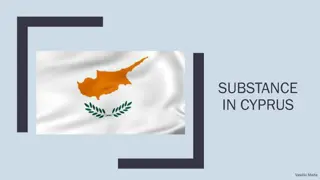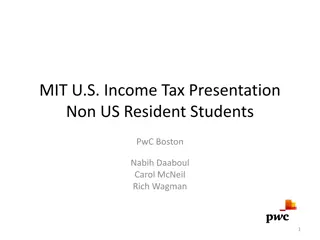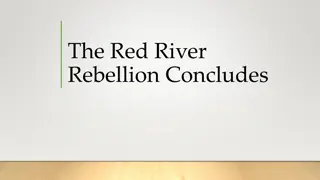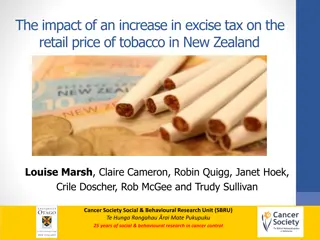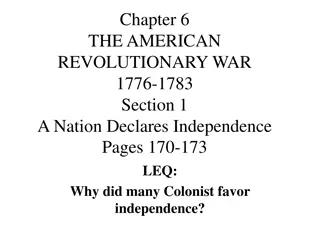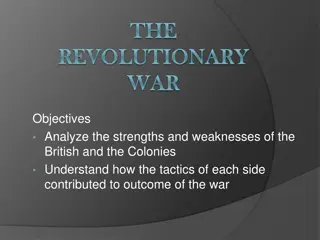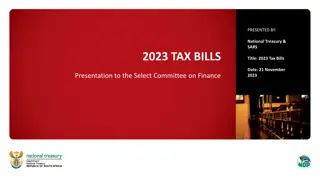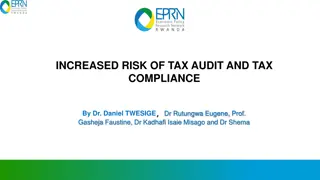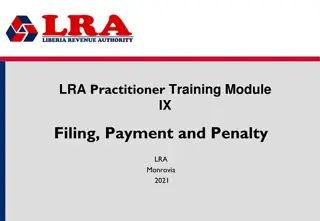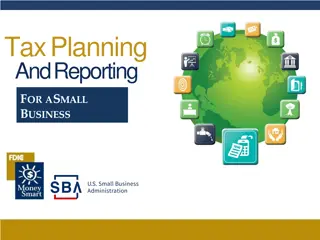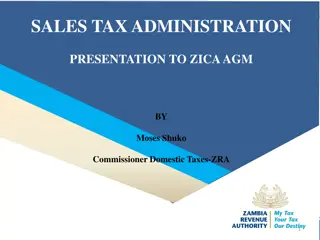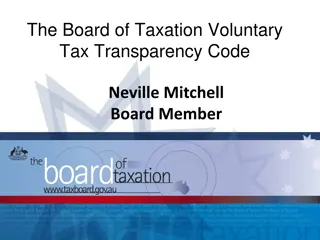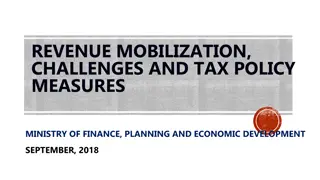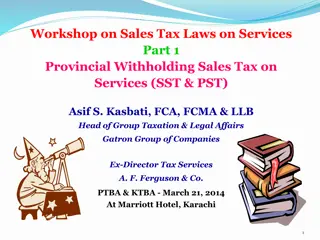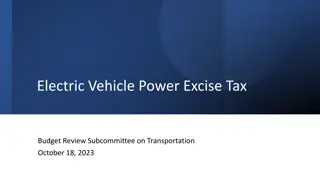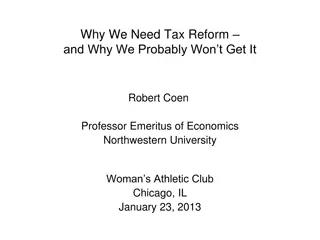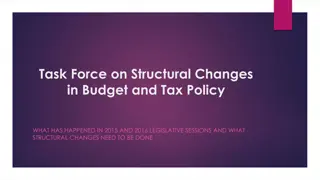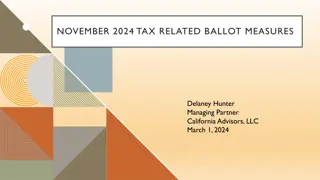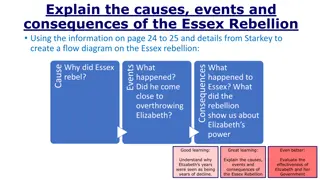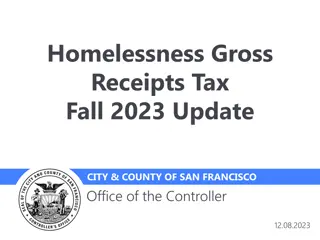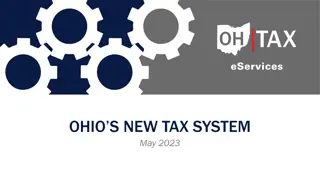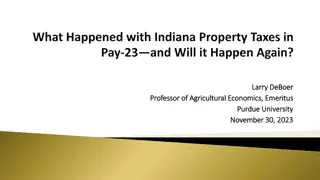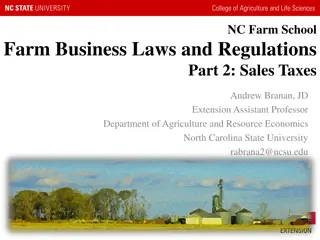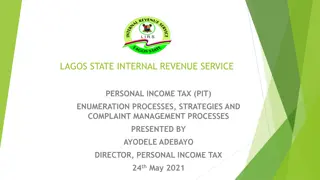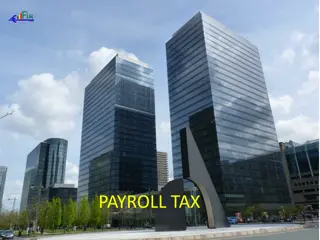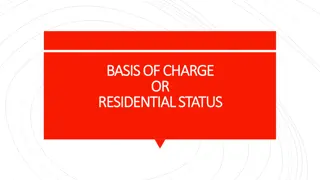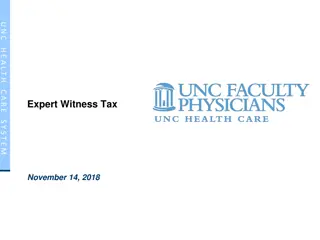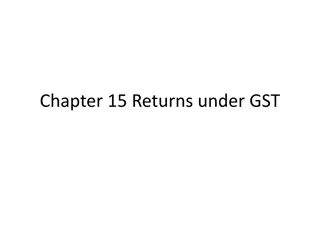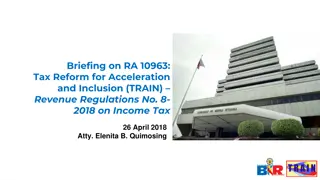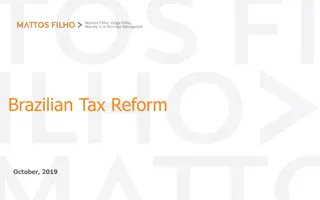Causes of Colonists' Rebellion: British Tax Policies
British taxation policies, including the Tea Act of 1773, outraged American colonists by imposing taxes without representation, leading to events like the Boston Tea Party. This anger fueled protests against the Intolerable Acts and ultimately escalated tensions towards rebellion.
Download Presentation

Please find below an Image/Link to download the presentation.
The content on the website is provided AS IS for your information and personal use only. It may not be sold, licensed, or shared on other websites without obtaining consent from the author. Download presentation by click this link. If you encounter any issues during the download, it is possible that the publisher has removed the file from their server.
E N D
Presentation Transcript
Chapter 5 The Road to Revolution 1745-1776 Section 3 From Protest to Rebellion Pages 150-153 LEQ: How did the British tax policies move the colonists closer to rebellion?
Key terms & People What you will know Monopoly Tea Act Boston Tea Party Intolerable Acts Repeal Minuteman
What you will do 1. Identify the causes of the Boston Tea Party 2. Explain how the colonists protested the Intolerable Acts 3. Describe the events of April 19, 1775, at Lexington and Concord 4. Analyze the mood of protest in the colonies 5. Identify and define key terms and people
Background Knowledge British policy of taxation had angered American Colonists in all colonies Question: What acts angered the colonists?
Tea As you watch the video, take notes about the Boston Tea Party. Think-pair-share
A Dispute Over Tea Recall The repeal of the Townshend Acts (1770) except for the one on ? Tea To show British control No taxation without representation
Dispute Over Tea In your HRT groups, answer the following questions about the Tea Act of 1773. Page 150 of your textbook 1. What was passed by the British Parliament? 2. What company did this act help? 3. What action by the colonists, hurt this company? 4. What did the Tea Act do, and how did it lower the prices of tea? 5. Why did some colonists dislike the Tea Act? 6. Why did colonial merchants dislike the Tea Act? 7. Define Monopoly. Use monopoly correctly in a sentence.
The Boston Tea Party In your HRT groups, answer the following questions about the Boston Tea Party. 1. What was the name of the protest group that stopped tea from being unloaded? 2. Which ports did not unload tea? 3. How did the protest group convince the ships captains not to unload their tea? 4. What was the name of the Boston Governor that was able to get their tea unloaded? How did he accomplish this? 5. What happened on December, 16, 1773. Describe the event 6. How did Bostonians show their opposition to the Tea Act
Summary In your own words. Summarize the Tea Act of 1773 and how it lead to the Boston Tea Party.
Activity With a partner or in your HRT groups Create a list of harsh rules or laws (5) that you must live by in your daily life. Rank you list from worst (1) to least worst (5) Share out
The Intolerable Acts In response to the Boston Tea Party King George III & Parliament called for tough action to make examples of the people March of 1774 Parliament passes the Coercive Acts (4 laws) Four laws 1. Port of Boston is closed 2. Decreased Massachusetts right to Self Govern by abolishing the upper house the legislature 3. Strengthened the Quartering Act 4. Increased the power of the Royal Governor In America these acts are called Intolerable Acts
The Intolerable Acts The Quebec Act is also passed in March of 1774 Allows the French to move back into Land between the Ohio and Missouri Rivers Blocks colonists from moving west Quebec s new boundaries take away the western lands Claimed by several colonies
Check on Learning 1. The Tea Act of 1773 helped what British company? 2. What group stopped tea from being unloaded at colonial ports? 3. What happened on December 16, 1773 at the Boston Harbor? 4. In response to the Boston Tea Party, Britain passed what acts/laws? 5. In America these acts are called what? 6. Give two examples of these new laws. 7. What act allowed the French to move back into the Ohio River Valley?
1st Continental Congress As you watch the video answer the following questions 1. Location of the 1st Continental Congress 2. What was the Declaration of Resolves? 3. What is the definition of minutemen?
First Continental Congress First Continental Congress September 1774 Organized by the Committees of Correspondence in Philadelphia 12 of the 13 colonies sent delegates Georgia did not attend Purpose To repeal the Intolerable Acts To declare the colonies had a right to Tax and govern themselves Training of militias minutemen Boycott of British goods To meet again in May 1775 If demands were not met
Checks on Learning 1. Purpose of the 1st Continental Congress? 2. Location of the 1st Continental Congress? 3. What group organized the 1st Continental Congress?
The Shot Heard Round the World In your HRT groups, answer the following questions about the Shot Heard Round the World. Page 152 1. Did the British government intend to meet the demands of the First Continental Congress? 2. How did the British government restore its authority? 3. What did General Thomas Gage learn about the minutemen in Concord? 4. What happened on April 18, 1775? Describe the events. 5. Which two men rode through the night warning the minutemen about the British troops? 6. Describe the Shot heard round the world . 7. What took place in Concord? 8. What is the name of the first two battles that started the American Revolution. 9. Define minutemen.
Lexington Lexington
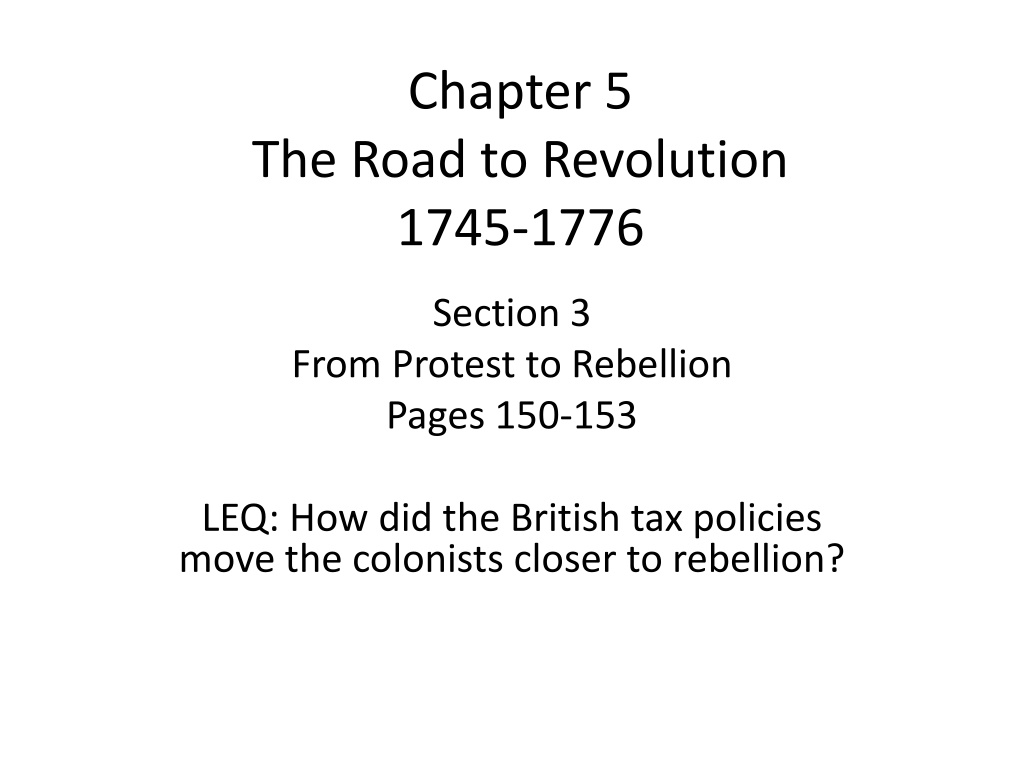

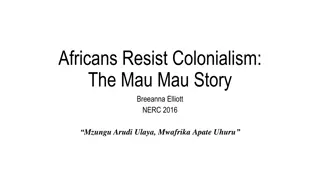
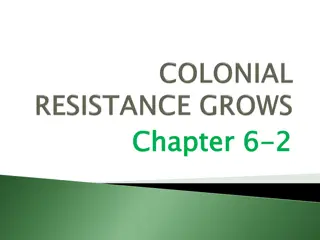
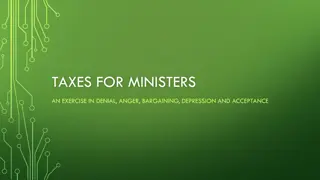


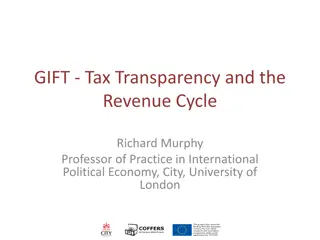
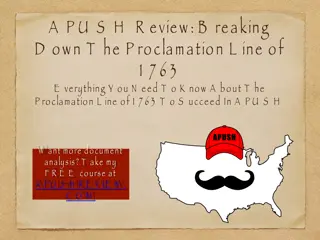
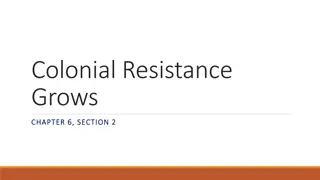

![Town of [Town Name] Real Estate Tax Rates and FY 2024 Budget Summary](/thumb/62211/town-of-town-name-real-estate-tax-rates-and-fy-2024-budget-summary.jpg)
